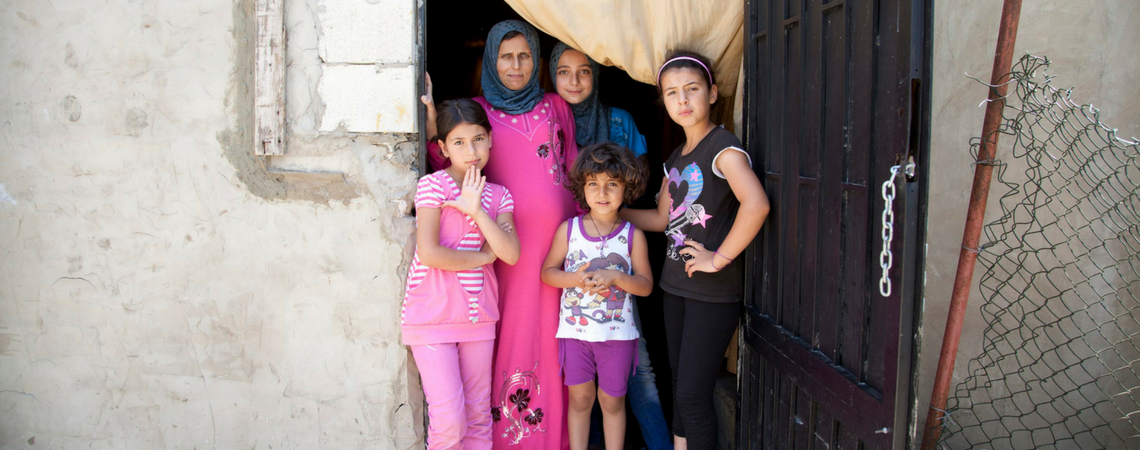Imagine a boy, 13 or 14, dashing home from school, his mother there to greet him and give him a quick snack before he rushes back out to kick the soccer ball with his friends in the dusty street. Like most boys that age, he spends the requisite time on school work but lives for those precious hours after school and before dinner to spend with his friends. His body is changing. His interests are evolving. His world is full of possibility.
This was Ali’s* life before ISIS took control of his city of Mosul in June 2014. Then everything began to change. There was less soccer. There was little time for friends. One didn’t want to be out on the streets unnecessarily. Fear crept in. Daily routines changed. Families restricted their movements and kept their heads down. It became about not being noticed, not standing out. This was not how teenaged boys expected to live.
Ali, though, is hard not to notice. He’s extremely thin, has a shock of thick, long hair that falls over one eye, he wears ripped, skinny jeans. He’s a hipster in the wrong place. And, of course, Ali was noticed. Not for what he was doing but for what he wasn’t. Ali didn’t usually go to the mosque for prayers. It wasn’t really his thing. And they noticed. ISIS found Ali and tortured him. He received 10 -15 lashes. They broke his arm. His family decided he had to flee. It was too dangerous for Ali to remain in Mosul. ISIS knew him now and that didn’t bode well for a boy like Ali.
On the 23rd of March 2016, Ali fled Iraq. Weeks later he arrived in Turkey where he lives to this day – in a shelter for unaccompanied minors, run by the Government of Turkey. He works twelve hours a day at a menial job to pay for his food. There is little hope, nothing but routine. Work, sleep, work again.
I met Ali in Ankara after he was selected to be a refugee youth delegate at the UN Refugee Agency (UNHCR) and Women’s Refugee Commission led, called “Global Consultations with Refugee Youth”. I noticed him the night before the Consultations started. He looked sad, lonely, and had a bit of a punkish edge, the floppy hair, the ripped jeans. Over the next four days, I watched him blossom. Articulate, committed, and energetic – he was impossible not to love. Amongst the 25 youth participants, he was among the youngest at 17, but soon emerged as a spokesperson and leader.
Ali and I stayed in touch over the past eight months since we met in Ankara. Last October he told me that he was interviewed by a delegation from the United States. Weeks later he shared that his application for resettlement had been approved. He even asked me if I would be his sponsor. I said “no, Ali, you need to be with a family – not living with a single man who’s never home in New York City.” On January 25th, he sent me a message that he was booked to fly to the U.S. in late February. He was overjoyed. Last Saturday, Ali sent another message. He was crying. He was removed from the flight manifest now and banned from the U.S. for at least six months. Ali didn’t understand. He’d been through the multiple interviews, had his finger prints taken, had multiple security checks. This is what he posted as his cover photo on Facebook that day.

Over the four days in Ankara and these eight months since, I’ve gotten to know Ali. He’s bright, compassionate, and thoughtful. He’s introspective and a bit shy. He’s full of ideas and potential. If allowed
into this country, he would be the best of us.
*Not his real name


